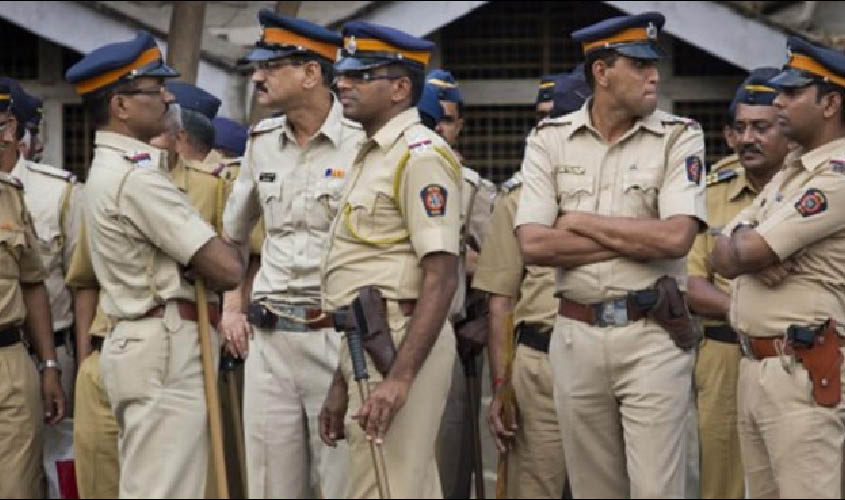‘Everyone derives power from the police and politicians are fearful of giving up their powers over the police.’
NEW DELHI: The long pending implementation of police reforms is the crying need of the hour and despite the Supreme Court’s order more than a decade ago to implement these reforms in India, states have largely failed to comply.
Several top police officers that The Sunday Guardian spoke to said that the lack of political will and politicisation of the police force over the years have led to the non-compliance with the Supreme Court’s order.
Maxwell Pereira, a former top cop of Delhi Police, said, “Police reforms have been the crying need of the hour for the last 70 years, not now. The Supreme Court ordered the states to implement police reforms, but the state governments have shown a callous approach towards this and they never bothered about the implementation. It is very difficult to separate the police from politics and in this country, it has not been possible because politicians and bureaucrats will not permit it. Everyone derives their power from the police and the politicians are fearful of giving up their powers over the police.”
Karnal Singh, senior IPS officer and former chief of the Enforcement Directorate, told The Sunday Guardian that transparency in transfers and postings that is talked about in police reforms should be immediately implemented.
Singh said, “Police reforms require the formation of a Police Establishment Board that would look after the transfer and postings of all senior police officers, but that has not yet come into force in any of the states. This is needed to bring about transparency in the police system. Currently, most of the transfers and postings are done on political whims and fancies.”
The Police Establishment Board requires the setting up of a board having members from the police, judiciary and the civil society that will look after transfers and postings of senior police officers.
On the question of political control of the police force in the country, Singh said, “The police system is part of the whole system in which the political system is also a part. No system can be insulated from the whole system; the police system is a sub-system of the whole criminal investigation system, and if one says that it has to be totally independent, it is practically not possible.”
The Supreme Court in 2006 issued an order to implement seven directives under police reforms to all state governments and Union Territories by January 2007; however, most of the directives of the apex court just remain on paper.
The seven directives that the Supreme Court had issued in 2006 include the constitution a State Security Commission (SSC) to ensure that the state government
Devika Prasad, Commonwealth Human Rights Initiative (CHRI) coordinator of the Police Reforms Programme, told this newspaper that the order passed by the Supreme Court still remains only on paper.
“There are some vested interests who want to keep things as they are now. Police reforms are about fixing the structural problems in our policing system. I think that there is a lack of understanding within the political class about what truly democratic oversight means and it is not even about control as such. The political executive cannot even keep the police resourced,” Prasad said.
She further added that the Supreme Court’s order was one step towards the direction, and there is so much that the courts can do; it is upon the political class and the executives to implement the orders of the court.
There are at least seven states which have not yet operationalised the Police Complaints Authority and those who have, have diluted the provisions of the Authority as mandated by the Supreme Court.
The states who are yet to establish a Police Complaints Authority include West Bengal, Bihar, Uttar Pradesh, Telangana, Tamil Nadu, Odisha, Himachal Pradesh and Andhra Pradesh. None of the states have complied with the Supreme Court directive of having separate wings for investigation and law and order.
However, many police officers believe that such distinction is not possible with the current strength of the police force and to have such separate wings, the police force needs to be strengthened with numbers. Currently, there is a shortage of more than 24% of police staff across the country, according to PRS Legislative Research data.
Both former IPS officers Pereira and Karnal Singh believe that the segregation of the investigation wing and the law and order wing of police is very much possible.
Pereira said, “Separation of investigation and law and order is very much possible and needed because all the time if you are drawing staff from the investigation duties to law and order duties, it affects their concentration and a separate wing will help them focus more on their specific duties.”
Singh said, “The investigation and law and order needs to be segregated. For example in Delhi Police, an investigating officer is needed to investigate 74 cases per annum and apart from that, he is also needed to do his law and order duties. So where will he get the adequate amount of concentration needed to investigate a case? Therefore, the concentration and quality goes down.”
However, former Delhi Police Commissioner Neeraj Kumar told The Sunday Guardian that with the shortage of staff that the Delhi Police or police across the country presently has, it would be very difficult to segregate these two wings.
Kumar also believes that the present form of police reforms is preposterous. “Police reforms which are presently recommended are all preposterous and not at all pragmatic. Which politician and which Chief Minister would like to give away the powers over their control of the police? The fixed tenure of two years is also not a feasible idea.”

